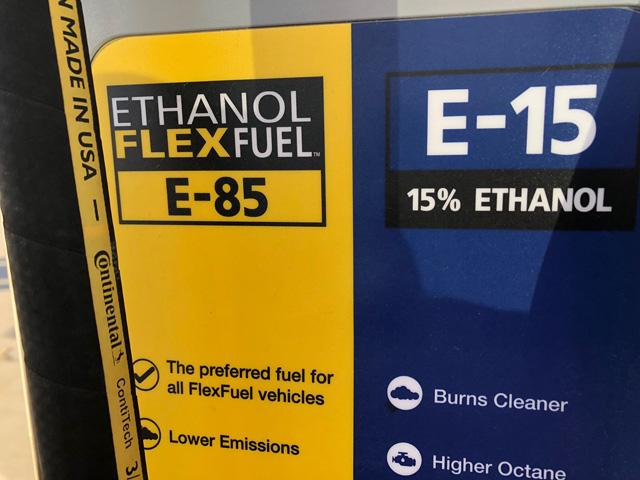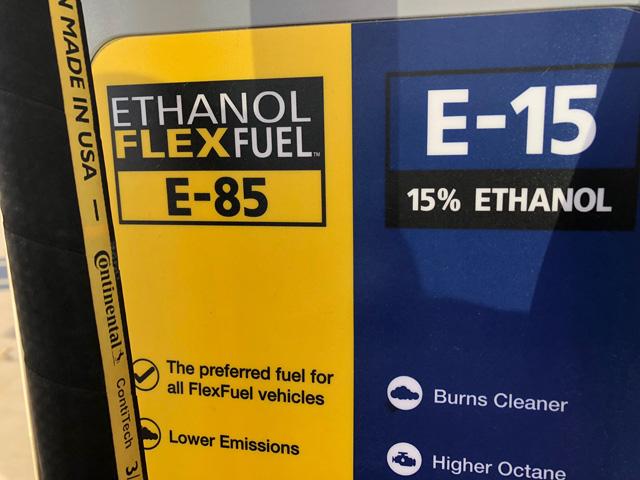Ethanol Blog
AFPM Calls on Eight States to Rescind E15 Requests With EPA
LINCOLN, Neb. (DTN) – The eight states expecting EPA action to allow year-round E15 permanently by 2024 should rescind their requests because they are likely to see significant costs in keeping the fuel available, officials with the American Fuel and Petrochemical Manufacturers said during a press call last week.
An AFPM-funded study released by the group purports to show total annual costs of $500 million to $800 million to provide E15 in Illinois, Iowa, Minnesota, Missouri, Nebraska, Ohio, South Dakota and Wisconsin.
In addition, AFPM said removing the RVP waiver from E10 would require the production of a new, lower-RVP base gasoline. That new boutique fuel can then be used to produce either E10 or E15 in those states and would be more expensive to produce.
Ericka Perryman, director of issues communications for AFPM, responded to a question raised by DTN on Twitter about whether E10 would no longer be offered for sale in the eight states.
"If these 8 states don't have the RVP waiver in place for summertime gasoline, then the gasoline recipe for the region will need to change," Perryman said in response.
"And that means a boutique gasoline product that's costlier to produce and distribute. With the RVP waiver removed, the same E10 gasoline sold last summer would no longer meet the standard. Even E15 would have to be made from this new base gasoline blend in order to be sold in the 8 states."
EPA responded to DTN's question about E10 in a statement last week.
P[L1] D[0x0] M[300x250] OOP[F] ADUNIT[] T[]
"Removing the 1 pound per-square-inch waiver will not limit the sale of any fuels in the covered states," EPA said. "The rule simply means that E10 must meet the same RVP standards as other gasoline blends like E0 and E15. The action also proposed a regulatory process by which a state may request to reinstate the 1-psi waiver. Finally, the action also discusses several petitions EPA has received to extend the effective date of the rule from the date originally requested in the governors' petitions."
AFPM makes a number of claims in its study including:
-The cost to produce, store and distribute a unique Midwestern fuel that must be segregated from other fuel is expected to range from 8 cents to 12 cents per gallon in the near term.
-Fewer refineries in the region will be capable of supplying Midwestern summertime gasoline. Refinery and supply system constraints would result in about 125,000 fewer barrels per day of in-region gasoline production and 33,000 fewer barrels per day of in-region diesel fuel production during the summer --equivalent to the loss of fuel from an outage at a large Midwest refinery.
-Capital improvement projects are estimated to cost $50 million to $75 million per facility.
-Lower fuel production in the region will be made up by fuel supplied from Gulf Coast refineries, which is transported to the Midwest by pipeline. Adding two new low-RVP grades (regular and premium) limits the capability of the fuel supply system to respond to a supply disruption.
-In the event of a disruption, the affected states could experience more frequent and longer supply disruptions and a higher risk of price spikes and shortages.
-Recent history shows price differences between low-RVP and high-RVP gasoline blends in the Midwest can reach 60 cents per gallon in a disruption.
-PADD (Petroleum Administration for Defense Districts) 2's refining complex evolved to serve conventional gasoline markets under the 1-psi ethanol waiver.
As a result, refiners and pipelines cannot readily produce and segregate high- and low-RVP gasolines. To do so would require investments that typically take two years to complete.
-Typically, refiners transition to summer-grade fuel in February and pipelines in March to meet the deadline for supplying summer-grade fuel at the pump.
Read the AFPM study here: https://www.afpm.org/…
Todd Neeley can be reached at todd.neeley@dtn.com
Follow him on Twitter @DTNeeley
(c) Copyright 2023 DTN, LLC. All rights reserved.






Comments
To comment, please Log In or Join our Community .